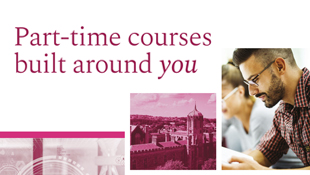-
Courses

Courses
Choosing a course is one of the most important decisions you'll ever make! View our courses and see what our students and lecturers have to say about the courses you are interested in at the links below.
-
University Life

University Life
Each year more than 4,000 choose University of Galway as their University of choice. Find out what life at University of Galway is all about here.
-
About University of Galway

About University of Galway
Since 1845, University of Galway has been sharing the highest quality teaching and research with Ireland and the world. Find out what makes our University so special – from our distinguished history to the latest news and campus developments.
-
Colleges & Schools

Colleges & Schools
University of Galway has earned international recognition as a research-led university with a commitment to top quality teaching across a range of key areas of expertise.
-
Research & Innovation

Research & Innovation
University of Galway’s vibrant research community take on some of the most pressing challenges of our times.
-
Business & Industry

Guiding Breakthrough Research at University of Galway
We explore and facilitate commercial opportunities for the research community at University of Galway, as well as facilitating industry partnership.
-
Alumni & Friends

Alumni & Friends
There are 128,000 University of Galway alumni worldwide. Stay connected to your alumni community! Join our social networks and update your details online.
-
Community Engagement

Community Engagement
At University of Galway, we believe that the best learning takes place when you apply what you learn in a real world context. That's why many of our courses include work placements or community projects.
Irish Studies (Diploma - online)
Course Overview
‘Could anything better typify the move from donkey-and-cart picture-postcard Ireland to high tech global leader in software technology that Ireland has become in recent decades?’President of Ireland Mary McAleese, speaking about the Irish Studies online course.
Irish Studies Online – What’s it all about?
Irish Studies Online is an interdisciplinary introduction to Irish Studies, developed by the Centre for Irish Studies, University of Galway. The two-year part-time diploma course offers an excellent opportunity for those interested in Ireland, especially those without access to traditional programmes of study in this area. The purpose of the diploma is to provide a basic introduction to Irish life and culture through the disciplines of Archaeology, History, literature in English and in Irish (presented in translation), Political Science and Sociology, traditional Irish music and dance.
Mode of Study: Online Learning - please visit our Online Learning webpage for further details on what is required to be an online learner.
Applications and Selections
Applications are made online via the University of Galway Applications System. This course is listed under Adult Learning Undergraduate\Postgraduate, CPD, Micro-credentials & Summer School Applications.
Please visit our How to Apply page for Application tips and Supporting Documents information.
Who Teaches this Course
Requirements and Assessment
All teaching and student-teacher interactions will take place online in the course’s online learning environment. Course content comprises illustrated text, online asynchronous discussions with lecturer and classmates, and multi-media content that includes recorded mini-lectures and recorded site visits. There are no live teaching sessions, rather set tasks to be completed by specified days of the week, removing the requirement to be online at any particular time. Support will be provided to students to help them become familiar with the online learning environment. The assessments take the form of weekly online reports and discussions, and essays completed at the end of each module.
Key Facts
Entry Requirements
Entry requirements for part-time students can be found here (i.e. age, english language requirements etc.). There are no specific entry requirements for the Diploma in Irish Studies (Online).
Additional Requirements
Recognition of Prior Learning (RPL)
Duration
2 years, part time
Next start date
September 2024
A Level Grades ()
Average intake
25
QQI/FET FETAC Entry Routes
Closing Date
NFQ level
Level 7
Mode of study
Online Learning
ECTS weighting
30
Award
CAO
Course code
Course Outline
Irish Studies Online comprises six modules. The modules provide an overview of Irish history from the pagan Celtic world and the coming of Christianity, through to the cataclysmic famines of the 1840s, the establishment of an independent state in 1922 and Ireland’s integration into the European community which has been ongoing since the 1970s. Students are introduced to Irish literature in both the Irish (Gaelic) and English languages, from the Old-Irish sagas and early Irish lyrics through the emergence of Anglo-Irish literature in the 18th century, to the 20th century revival of writing in Irish. Emphasis is also placed on the study of Irish society since independence with due consideration of such crucial issues as gender, religion, modernization, identity and socio-economic development.
Curriculum Information
Curriculum information relates to the current academic year (in most cases).Course and module offerings and details may be subject to change.
Glossary of Terms
- Credits
- You must earn a defined number of credits (aka ECTS) to complete each year of your course. You do this by taking all of its required modules as well as the correct number of optional modules to obtain that year's total number of credits.
- Module
- An examinable portion of a subject or course, for which you attend lectures and/or tutorials and carry out assignments. E.g. Algebra and Calculus could be modules within the subject Mathematics. Each module has a unique module code eg. MA140.
- Optional
- A module you may choose to study.
- Required
- A module that you must study if you choose this course (or subject).
- Semester
- Most courses have 2 semesters (aka terms) per year.
Year 1 (15 Credits)
Required IS1164: Early Christian Ireland 431-1169
IS1164: Early Christian Ireland 431-1169
Semester 1 | Credits: 5
The course provides a brief overview of Irish history from the pagan Celtic world and the coming of Christianity to the arrival of the Normans in Ireland in 1169. Archaeological remains are studied to gain insights into Irish society in the pre-Christian period and in the Middle Ages. Students are introduced to Irish literary texts such as the Old-Irish sagas and study the ancient Irish epic text Táin Bó Cuailgne from an interdisciplinary perspective. The Celtic question is also addressed.
(Language of instruction: English)
Learning Outcomes
- Outline the archaeological evidence from the Iron Age and Early Christian period.
- Trace major historical events during this period.
- Recognise examples of early literature in Irish.
- Discuss the accuracy of early Irish literature as a reflection of life in Ireland.
- Understand the arguments against a Celtic invasion of Ireland.
Assessments
- Continuous Assessment (100%)
Teachers
- MICHELLE COMBER:
Research Profile |
Email
- SAMANTHA WILLIAMS:
Research Profile |
Email
- NESSA CRONIN:
Research Profile |
Email
- MÉABH NÍ FHUARTHÁIN:
Research Profile |
Email
- BRIDIN NICDHONNCHA:
Research Profile |
Email
Reading List
- "Early Medieval Ireland, 400-1200." by O Croinin
Publisher: Longman - "The Archaeology of Early Medieval Ireland." by Edwards
Publisher: Routledge - "Pagan Celtic Ireland" by Raftery
Publisher: Thames and Hudson
Note: Module offerings and details may be subject to change.
Required IS1166: Early Modern Ireland 1603 - 1845
IS1166: Early Modern Ireland 1603 - 1845
Semester 2 | Credits: 5
Students acquire an interdisciplinary perspective on the patterns of Early Modern Irish society by integrating perspectives gained through the study of Irish literature in both Irish (Gaelic) and English, and history during the period 1603 - 1850. Students investigate the development of Irish (Gaelic) poetry and its response to the political turmoil of this period as well as exploring the events of the 1798 rebellion. Particular attention is paid to the emergence of Anglo-Irish literature.
(Language of instruction: English)
Learning Outcomes
- Evaluate the impact of various patterns of land settlement on the history and culture of the native Irish population.
- Compare and contrast the family origins of various literary figures of the time and explain the role this background had on their writings.
- Discuss the influences on, and differences between, Irish writers in English and Irish, 1603 - 1845.
Assessments
- Continuous Assessment (100%)
Teachers
- MICHELLE COMBER:
Research Profile |
Email
- SAMANTHA WILLIAMS:
Research Profile |
Email
- NESSA CRONIN:
Research Profile |
Email
- MÉABH NÍ FHUARTHÁIN:
Research Profile |
Email
- BRIDIN NICDHONNCHA:
Research Profile |
Email
Reading List
- "The Oxford Illustrated History of Ireland." by Foster
Publisher: Oxford University Press - "Irish Classics." by Kiberd
Publisher: Harvard University Press - "An Duanaire." by O Tuama and Kinsella
Publisher: Dolmen Press. - "Repossessions." by O Tuama
Publisher: Cork University Press
Note: Module offerings and details may be subject to change.
Required IS1165: Medieval Ireland 1169 - 1603
IS1165: Medieval Ireland 1169 - 1603
Semester 2 | Credits: 5
This course focuses on the upheaval in Irish society caused by the Anglo-Norman invasion of the twelfth century and its consequences for Irish social, political and cultural life. It provides a brief historical survey of Gaelic and Gaelicised Ireland in the early Middle Ages and an insight into the archaeology of the Irish Church. The survey also includes a brief introduction to the world of the Irish bardic poet and his work.
(Language of instruction: English)
Learning Outcomes
- Describe the different forms of medieval castle and the typical abbey.
- Outline the significant historical events in medieval Ireland.
- Identify the various forms of native Irish literature from the period.
- Debate the impact the Anglo-Norman invasion had on Ireland.
Assessments
- Continuous Assessment (100%)
Teachers
- MICHELLE COMBER:
Research Profile |
Email
- SAMANTHA WILLIAMS:
Research Profile |
Email
- NESSA CRONIN:
Research Profile |
Email
- MÉABH NÍ FHUARTHÁIN:
Research Profile |
Email
- BRIDIN NICDHONNCHA:
Research Profile |
Email
Reading List
- "Ireland in the Age of the Tudors." by Ellis
Publisher: Longman - "The Oxford Illustrated History of Ireland." by Foster
Publisher: Oxford University Press - "The Archaeology of Medieval Ireland" by Barry
Publisher: Routledge
Note: Module offerings and details may be subject to change.
Year 2 (15 Credits)
Required IS2164: Modern Ireland 1845 - 1998
IS2164: Modern Ireland 1845 - 1998
Semester 1 | Credits: 5
Students acquire an interdisciplinary perspective on the patterns of Modern Irish society by integrating perspectives gained through the study of Irish literature in both languages - Irish (Gaelic) and English, and history during the period from the Irish Famine to the present day. Students study the development of Anglo-Irish literature in the 19th century as well as the 20th century revival of writing in Irish. Particular emphasis is given to the study of Irish society since independence.
(Language of instruction: English)
Learning Outcomes
- Evaluate the impact of various patterns of land settlement on the history and culture of the native Irish population.
- Compare and contrast the family origins of various literary figures of the time and explain the role this background had on their writings.
- Be familiar with the major literary figures in both the English and Irish Language.
- Have an understanding of the role and history of the Irish Language in the 19th and 20th centuries.
Assessments
- Continuous Assessment (100%)
Teachers
- MICHELLE COMBER:
Research Profile |
Email
- SAMANTHA WILLIAMS:
Research Profile |
Email
- NESSA CRONIN:
Research Profile |
Email
- MÉABH NÍ FHUARTHÁIN:
Research Profile |
Email
- BRIDIN NICDHONNCHA:
Research Profile |
Email
Reading List
- "Irish Classics." by Kiberd
Publisher: Harvard University Press. - "Repossessions." by O Tuama
Publisher: Cork University Press. - "Modern Irish Poetry." by Crotty
Note: Module offerings and details may be subject to change.
Required IS2166: From Ceili to Riverdance: Irish Traditional Music
IS2166: From Ceili to Riverdance: Irish Traditional Music
Semester 2 | Credits: 5
This course explores some of the key changes in Irish traditional music and dance practice during the long twentieth century, 1893 to 2000. Taking the cultural revival of the latter part of the nineteenth century as a starting point, students critically examine the role of music and dance practice in rural Ireland and the process of modernization which occurred as these practices became urbanized, both in Ireland and among her emigrant communities.
(Language of instruction: English)
Learning Outcomes
- Understand the development of Irish traditional music and dance during the twentieth century.
- Critically assess the key manifestations of Irish identity through music and dance practice in the twentieth century.
- Identify the sound and choreography of Irish music and dance in the twentieth century.
Assessments
- Continuous Assessment (100%)
Teachers
- MICHELLE COMBER:
Research Profile |
Email
- SAMANTHA WILLIAMS:
Research Profile |
Email
- NESSA CRONIN:
Research Profile |
Email
- MÉABH NÍ FHUARTHÁIN:
Research Profile |
Email
- BRIDIN NICDHONNCHA:
Research Profile |
Email
Reading List
- "Focus: Irish Traditional Music." by Williams
Publisher: Routledge - "Companion to Irish Traditional Music." by Vallely
Publisher: Cork University Press
Note: Module offerings and details may be subject to change.
Required IS2165: Social & Political Change in Contemporary Ireland
IS2165: Social & Political Change in Contemporary Ireland
Semester 2 | Credits: 5
This course uses the results of sociological research in Ireland to examine Irish society. There is an underlying question that is addressed as students move through the different topics - how has Irish society been changed by the economic transformation that was initiated in the 1950s? On completion of this introductory course in Irish Society, students will have gained an insight into the planned economic change and unplanned social changes that have shaped contemporary Ireland.
(Language of instruction: English)
Learning Outcomes
- Compare and contrast the agricultural and industrial trends of the period.
- Appraise the changing role of the Catholic Church in modern Ireland as it relates to the economic and social trends of the country.
- Identify key issues related to the changing role of women during this period.
- Discuss the various trends impacting the contemporary Irish educational system.
- Compare and contrast various social trends that relate to changing crime statistics.
Assessments
- Continuous Assessment (100%)
Teachers
- MICHELLE COMBER:
Research Profile |
Email
- SAMANTHA WILLIAMS:
Research Profile |
Email
- NESSA CRONIN:
Research Profile |
Email
- MÉABH NÍ FHUARTHÁIN:
Research Profile |
Email
- BRIDIN NICDHONNCHA:
Research Profile |
Email
Reading List
- "A Sociology of Ireland." by Tovey and Share
Publisher: Harvard University Press. - "Northern Ireland conflict and change." by Tonge
Publisher: Pearson.
Note: Module offerings and details may be subject to change.
Why Choose This Course?
Career Opportunities
The information and skills introduced by this course may contribute to careers in a wide variety of areas, such as in the heritage, tourism and education sectors.
Who’s Suited to This Course
This course will appeal to those who are interested in Ireland’s past and culture including primary school teachers, secondary school teachers and heritage employees. It will also be of interest to those who are employed in the tourism industry.
Learning Outcomes
Transferable Skills Employers Value
Work Placement
Study Abroad
Related Student Organisations
Course Fees
Fees: EU
Fees: Tuition
Fees: Student levy
Fees: Non EU
A fee scholarship of up to 30% may be available for students who wish to upskill for the purposes of re-employment. For more information download the 2024_25 Fees Scholarship Form
Find out More
Tel: 091 492051
Email: nessa.cronin@universityofgalway.ie
What Our Students Say

Brian McDonough | Diploma Graduate
The strength of the course is that there is constant involvement with our lecturer and other students. Each week we completed written assignments relevant to our studies. A key part of the assignments are discussion groups which allow the student to interact with other learners on a regular basis. Over a two-year period we became "friends" and learnt a great deal from each other. Michelle Comber, our lecturer, expects commitment and effort which makes the time spent quite worthwhile. The videos presented online are well thought out and the content is superb. This course allows the student to not just study history, but to examine the culture and the interplay between historic events and the shaping of the people.


















